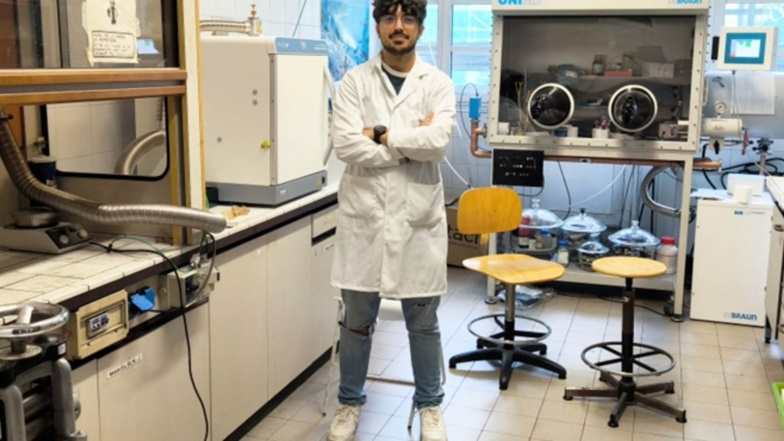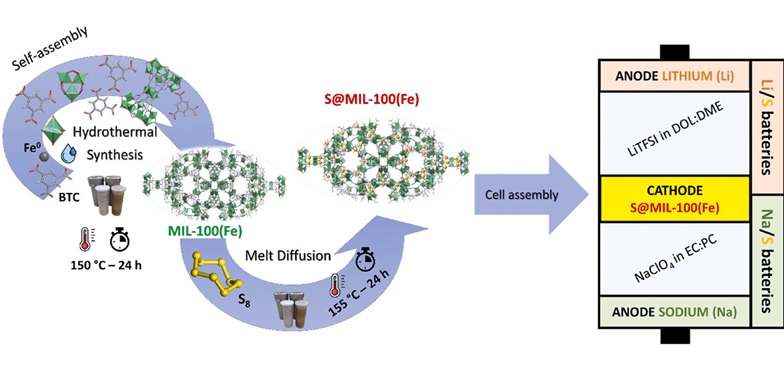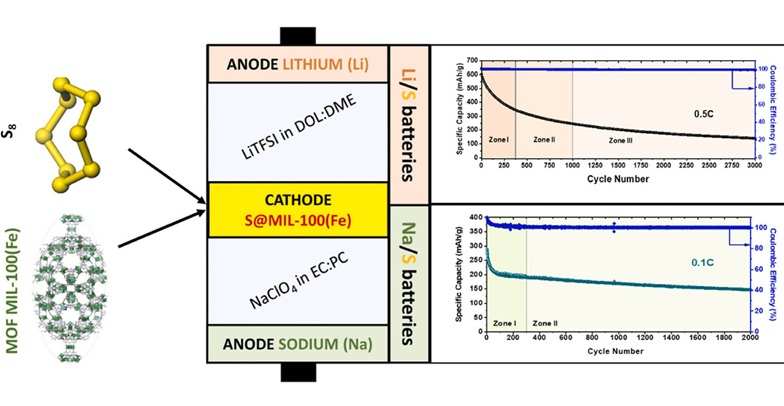The Future of Batteries: A Breakthrough in Sodium-Sulfur Battery Technology
The race for better, cheaper, and more sustainable batteries has taken a significant leap forward with groundbreaking research from the University of Córdoba (UCO) in Spain. This innovative team has developed a sodium-sulfur (Na-S) battery that not only rivals lithium-ion batteries in durability but also exceeds them in affordability and sustainability. this revolutionary technology and what it could mean for the future of energy storage and electric vehicles.

Sodium-Sulfur Batteries
Sodium-sulfur batteries have been around for nearly 50 years. They typically utilize sodium and sulfur as primary materials and have long been considered an alternative to lithium-ion batteries. However, their adoption has been limited due to certain drawbacks:
- Lower Energy Capacity: Traditional Na-S batteries lagged behind lithium-ion batteries in terms of energy density.
- High Operating Temperatures: These batteries required temperatures around 300°C to maintain a liquid electrolyte, making them impractical for many applications.
- Short Lifespan: Earlier versions could not withstand the repeated charge-discharge cycles needed for long-term use.
But now, researchers at UCO have addressed these limitations, paving the way for sodium-sulfur batteries to emerge as a viable alternative to lithium.
What Makes This Sodium-Sulfur Battery Special?
The best sodium battery beats the best lithium battery
The UCO research team, led by Álvaro Bonilla as part of his doctoral thesis, has achieved a series of advancements that redefine the capabilities of sodium-sulfur batteries. Here’s what makes their invention a game-changer:

1. Exceptional Longevity
The new sodium-sulfur battery can endure over 2,000 charge-discharge cycles. To put this into perspective, the average lithium-ion battery in phones or cars is charged around 120 times per year. This means the UCO battery could last more than 15 years, making it an ideal choice for long-term applications like electric vehicles (EVs) and renewable energy storage.
2. Sustainable and Abundant Materials
Unlike lithium-ion batteries, which rely on scarce and often environmentally harmful materials like cobalt, the UCO battery uses:
- Sulfur: A cost-effective, abundant, and sustainable material for the cathode.
- Sodium: A widely available and inexpensive alternative to lithium for the anode.
These materials not only reduce production costs but also align with global sustainability goals.
3. Room-Temperature Operation
For the first time, the sodium-sulfur battery operates efficiently at room temperature, eliminating the need for high-temperature maintenance. This breakthrough significantly enhances its practicality and energy efficiency.
4. Innovative Design
To overcome the challenges posed by sodium’s larger atomic size, the team incorporated an iron-based metal-organic framework (MOF) into the cathode. The MOF’s porous structure and iron atoms improved sodium ion movement, enhancing performance and durability.
Sodium-Sulfur to Lithium-Ion Batteries
| Feature | Sodium-Sulfur Battery | Lithium-Ion Battery |
|---|---|---|
| Lifespan | Over 2,000 cycles (15+ years) | 500–1,500 cycles (3–10 years) |
| Materials | Sodium and sulfur (abundant, sustainable) | Lithium and cobalt (scarce, costly) |
| Cost | Lower production costs | Higher due to rare materials |
| Operating Temperature | Room temperature | Room temperature |
| Energy Capacity | Comparable with lithium | High energy density |
| Charging Time | Currently ~1 hour, ongoing improvement | Typically 30–60 minutes |
Key Challenges and Ongoing Research
Despite its remarkable advancements, the sodium-sulfur battery isn’t without its hurdles:
- Charging Time: The current charging time is approximately one hour, which is longer than most lithium-ion batteries. The team aims to reduce this to 10 minutes through further research.
- Scaling Up Production: Transitioning from laboratory success to mass production will require overcoming technical and logistical challenges.
The research is part of a larger project titled “Transition from Lithium to Sodium in Sulfur Batteries,” funded by the Ministry of Science and Innovation. Collaborators include the National University of San Luis in Argentina.

Implications for Electric Vehicles and Beyond
The potential applications for this new battery technology are vast:
- Electric Vehicles (EVs): With a longer lifespan, lower costs, and sustainable materials, sodium-sulfur batteries could make EVs more affordable and environmentally friendly.
- Renewable Energy Storage: These batteries could store surplus energy from solar and wind farms, offering a sustainable solution for grid-scale energy storage.
- Consumer Electronics: From smartphones to laptops, devices powered by these batteries could last longer and cost less.
A Step Toward a Sustainable Future
The importance of this innovation goes beyond just performance and cost. It represents a step toward a more sustainable future, addressing the environmental and ethical concerns surrounding lithium-ion batteries.
- Environmental Impact: The extraction of lithium and cobalt is resource-intensive and often harmful to ecosystems. Sodium and sulfur, on the other hand, are abundant and less damaging to the environment.
- Ethical Considerations: Cobalt mining has been linked to human rights abuses. Transitioning to sodium-sulfur batteries could reduce dependence on this controversial material.
The sodium-sulfur battery developed by the University of Córdoba is a testament to the power of innovation in solving complex challenges. By combining durability, sustainability, and cost-effectiveness, this technology has the potential to redefine energy storage across industries.
While challenges remain, ongoing research and development efforts promise to refine and scale up this breakthrough, bringing us closer to a future where batteries are not just powerful, but also ethical and sustainable.
Whether you’re an EV enthusiast, a tech lover, or someone invested in a greener planet, the sodium-sulfur battery is a development worth keeping an eye on.
Related Post
